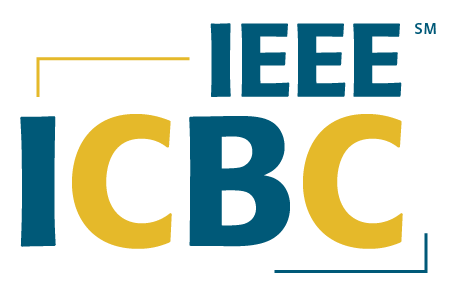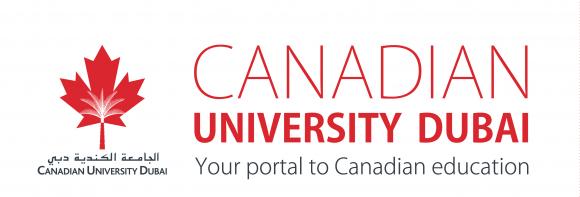KEYNOTE SPEAKERS
Keynote 1: Prof. Davor Svetinovic, Khalifa University and Vienna University of Economics and Business, download the slides here.
Keynote 2: Prof. Dr. Stefan Tai, Technical University of Berlin, download the slides here.
Keynote 3: Dr. Adnan Imeri, Luxembourg Institute of Science and Technology (LIST), download the slides here.
KEYNOTE 1, TUESDAY, 2 MAY, 10:25-11:15

PROF. Davor Svetinovic
Professor at Khalifa University, and Vienna University of Economics and Business
Title: Blockchain Turbulences: From Trust to Censorship Resistance
Abstract:
Blockchain technology has already established itself for developing various new complex decentralized software systems. For example, integrating blockchains, Artificial Intelligence (AI), and the Internet-of-Things (IoT) provides a promising new research and development direction that has generated significant research funding and venture capital investments. Each of these technologies is coming forward with a new set of engineering challenges (e.g., understanding the requirements related to trust and ethics, system resilience towards unpredictable market behavior, or development of ultra-long-term software systems). At the same time, various blockchain systems are going through turbulent swings in value, culture, trustworthiness, illegal activity, public perception, supporting market infrastructure, and censorship resistance.
This keynote will present a selection of our recent work ranging from engineering trust to building censorship-resistant federated learning on decentralized permissionless blockchains. The common theme is understanding how various innovations, illegal activities, and system manipulations lead to blockchain system turbulences and vice versa. The keynote discusses the feasibility of engineering mechanisms to predict and dampen the effects of blockchain turbulences using market mechanisms and machine learning. The goal is to increase fundamental blockchain system trustworthiness, reliability, and public acceptability, while increasing the value and benefits of complex blockchain systems.
VITA:
Davor Svetinovic is a professor at Khalifa University, United Arab Emirates (UAE), and Vienna University of Economics and Business, Austria (on leave). He is the Chair of the Institute for Distributed Ledgers and Token Economy and the Director of the Research Institute for Cryptoeconomics.
He received his doctorate in computer science from the University of Waterloo, Waterloo, ON, Canada, in 2006. He did his post-doctoral work at TU Wien, Austria, and Lero – the Irish Software Engineering Center, Ireland. In 2008, he joined the MIT (Visiting Professor, Research Affiliate) – Masdar Institute (Assistant/Associate Professor) Initiative as a founding faculty member. He contributed to the development of the Masdar Institute and the overall advanced research ecosystem in the United Arab Emirates. Following early success, the Masdar Institute was merged with two other universities (PI and KUSTAR) to form Khalifa University, a top-ranked research-intensive university, where he has continued his blockchain technology research. He was also a research affiliate at the world-renowned MIT Media Lab, MIT, USA.
Davor has extensive experience working on complex multidisciplinary research projects. He has authored or co-authored more than 90 papers in leading journals and conferences and is a highly cited researcher in blockchain technology. His current research interests include blockchain technology, cryptoeconomics, trust, and software engineering. His career has furthered his interest and expertise in developing advanced research capabilities and institutions in emerging economies. Davor is a Senior Member of IEEE and ACM.
KEYNOTE 2, WEDNESDAY, 3 MAY, 10:15-11:15

Prof. Dr. Stefan Tai
Professor at Technical University of Berlin
Title: Repurposing but uncompromising the Blockchain
Abstract:
Transactions are at the core of every blockchain network and blockchain-based application. Grouped into blocks, they are the units to be processed and to be recorded by all involved peers. Consequently, many challenges of blockchains, including their scalability, operational costs, and the privacy-transparency dilemma can be ascribed to the nature and usage of blockchain transactions as broadly understood and practiced today. Tackling these challenges, in turn, requires questioning what a blockchain transaction can and should be, what it should not be, and how blockchain transactions relate to transactions processed elsewhere.
We argue to treat a blockchain as a costly component in a larger distributed systems context and to use it in minimalistic and carefully designated ways only. Complex, expensive, and data-intensive computations are all better executed blockchain-externally, but select results, commitments, and proofs of off-chain computations can be stored on-chain. Thereby, the desirable and important blockchain properties of ensuring immutable, tamper-resistant, and transparent transaction records remain uncompromised, while the blockchain itself is being repurposed for a more specific use and focused role in larger, heterogeneous off-chain environments.
We call for increased on-/off-chain awareness (along and beyond the lines of oracles and layer 2 solutions) to achieve a meaningful, secure and trustworthy interplay of blockchains with non-blockchain components. We report on our work on ZoKrates und using ZKPs for verifiable off-chain computations as one example for tackling said challenges through a reshaped understanding of blockchain transactions and a concerted interplay of on- and off-chain components. Ultimately, the goal is to satisfy and reconcile the objectives of scalable, practical, privacy-preserving, economically feasible, and trustworthy transaction processing in heterogeneous on-/off-chain environments.
VITA:
Stefan Tai is Full Professor and Head of Chair Information Systems Engineering at TU Berlin, Germany (2014-present). Prior to that, he was a Full Professor at the Karlsruhe Institute of Technology (2007-2014) and a Research Staff Member at IBM Research in New York, USA (1999-2007). He also held concurrent posts as Director of research labs focusing on technology transfer and is a member of corporate supervisory and advisory boards. He earned his Ph.D. in Computer Science from TU Berlin in 1999.
Stefan specializes on next-generation, platform-based distributed software systems that meet complex system qualities, including qualities that are relatively well-understood, like performance and reliability, but also qualities that are less well-understood, like privacy or sustainability. Platforms of interest include cloud platforms, especially serverless platforms, and blockchain networks, and their meaningful combination and interplay. Methods of interest include continuous software engineering methods, especially software architecture design and methods in support of experimentation and benchmarking.
KEYNOTE 3, THURSDAY, 4 MAY, 10:15-11:15

Dr. Adnan Imeri
R&T Associate at Luxembourg Institute of Science and Technology (LIST)
Title: Blockchain as an enabler technology of Self-Sovereign Identities and Verifiable Credential
Abstract:
Blockchain enables technological transformation by enhancing digitalization aspects from a software connector (enabler) standpoint. It demonstrates the ability to replace conventional aspects of activities, such as authentication mechanisms, via decentralized digital identities. Decentralized digital identities are currently seen to be advantageous for persons, applications, devices, and society to cope with the digital era. Decentralized digital identities and verifiable credentials are replacing trust third parties and paper-based authentications in identifying persons (humans), documents (e.g., diplomas), and devices in swarm computing, leveraging the trust and reliability of the digital world.
As for today, students can prove their diplomas by sharing and validating digital credentials, and applications can validate information sharing based on the self-severing identities (SSI) approach. Furthermore, IoT devices can be authenticated in a decentralized way allowing for agile and secure designs for collaborative smart nodes with decentralized or swarm intelligence.
Using decentralized identity enables dynamic, open environments for deploying decentralized architectures and interfaces, interoperability, and avoiding vendor lock-in. That is enabled by combining different concepts, such as a decentralized application (DApp), and operated based on the shared interests of the stakeholders involved, i.e., supported by a decentralized autonomous organization (DAO).
In this presentation, in the first part, we show the blockchain's technological capabilities for enabling decentralized digital identities based on the SSI approach. Then, we continue with the broad state-of-the-art examples of the applicability of decentralized identity in various use cases.
VITA:
Dr. Adnan Imeri is an R&T Associate at Luxembourg Institute of Science and Technology (LIST) and has the position of Technical Lead at Infrachin. He holds PhD in Computer Science from the University of Paris-Saclay (UEVE) and the University of Luxembourg, focusing on blockchain technology and its applicability in real-world use cases. Before that, he held a master's degree in Computer Science from the University of Geneva, where he gained research experience by being employed by that prestigious University.
His current research interest is mainly associated with blockchain technology, implementing blockchain-based use cases, integrating blockchain and the Internet of Things (IoT), Self-Sovereign Identity (SSI), trust and secure information sharing, and many other related industrial and research use cases. He has extensive experience in research projects at the European and national levels and is also an experienced software engineer. Currently he is involved in several European projects i.e., Horizon, applying blockchain into public services, edge-swarm computing, IA/ML security, 5G and beyond.





